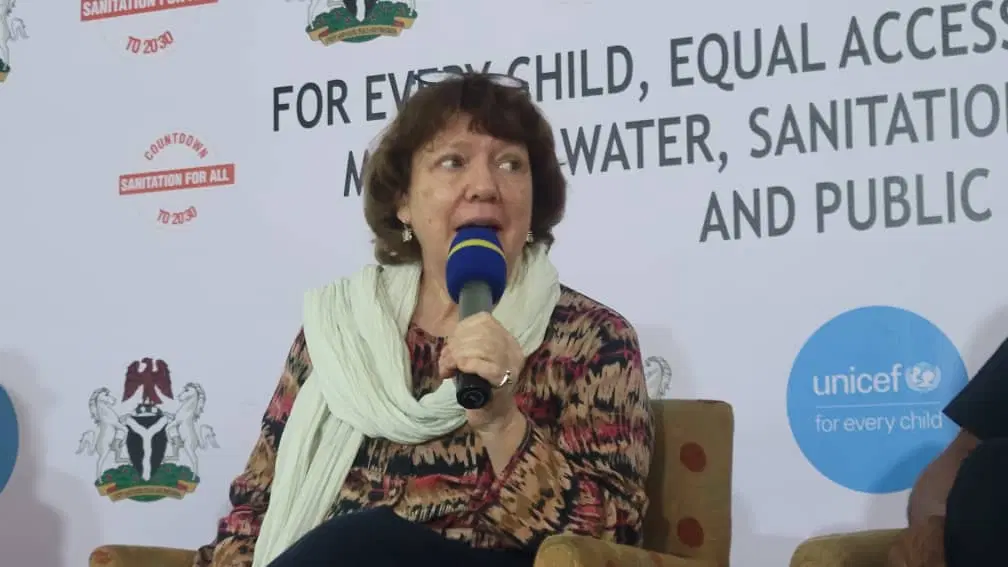In a significant move to address critical health issues in Nigeria, UNICEF has teamed up with journalists, government officials, and other relevant stakeholders to combat open defecation and eliminate Neglected Tropical Diseases (NTDs).
At a two-day Media Dialogue held in Lagos State, UNICEF’s Chief of Water, Sanitation and Hygiene (WASH), Jane Bevan, highlighted the importance of collaboration in advancing the campaign. Bevan stressed that ending open defecation and preventing NTDs requires a unified effort from all sectors of society.
“Proper sanitation practices are essential to prevent diseases caused by bacteria and NTDs,” Bevan said. “We need collective action from the government, private sector, banks, and individuals to eradicate open defecation in Nigeria.”
Bevan drew a parallel to India’s successful campaign, which was widely publicized across media, schools, and hospitals. She emphasized the need for a similar media-driven approach in Nigeria to change public attitudes and behaviors.
Chizome Opara, Coordinator of Clean Nigeria, expressed concern over the 48 million Nigerians still practicing open defecation. She called for immediate action from all stakeholders to address the issue and improve sanitation and hygiene practices.
Joseph Adeyemo, Assistant Director of WASH Track at the Ministry of Water Resources, linked open defecation to the spread of NTDs, noting that diseases like onchocerciasis, schistosomiasis, trachoma, lymphatic filariasis, and soil-transmitted helminthiasis are transmitted through contaminated soil and feces. He emphasized that addressing open defecation is crucial for reducing the incidence of these diseases and breaking the cycle of poverty and poor health.



